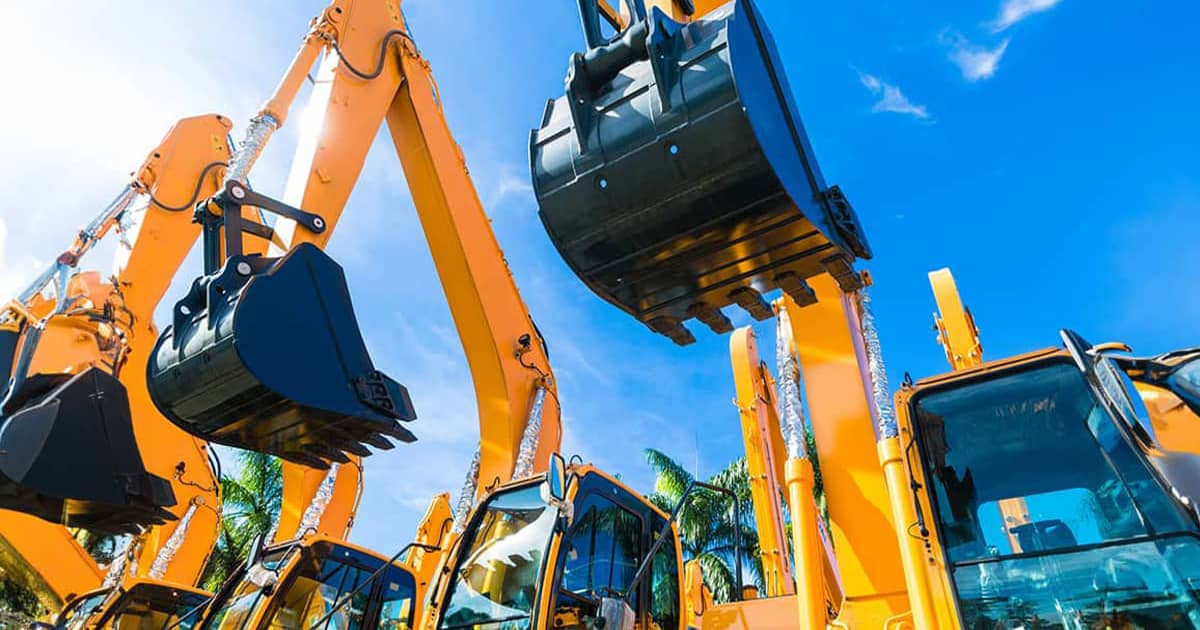Within the quick-moving realm of building, decisions must be made with both speed and accuracy. As initiatives become more intricate and budgets tighter, smart contractors are shifting to equipment leasing as a tactical solution in 2023. The capability to obtain the most advanced machinery without the weight of a hefty upfront cost allows contractors to remain competitive while improving their cash flow. Equipment leasing is not just about getting tools; it is about finding the right partnership that can adjust to the changing needs of a project.
Selecting the right construction equipment leasing provider requires careful thought. With so many options available, it’s essential for contractors to know what to look for in a trustworthy lease company. From evaluating lease terms to grasping maintenance clauses, this guide will help guide you through the landscape of equipment leasing, emphasizing key factors and common mistakes. If you're a seasoned contractor or just beginning, knowing how to choose a reliable lease provider will facilitate successful project completion and sustainable growth.
Identifying the Right Equipment Rental Collaborator

Locating the appropriate equipment leasing partner is crucial for developers aiming to optimize their job productivity and budgetary management. Begin by reviewing the vendor's standing throughout the development field. A trustworthy associate should have positive ratings, testimonials from other developers, and a history of effective collaborations. Networking with peers and seeking recommendations can also lead you to trustworthy companies that align with your particular needs.
Versatility is a further key aspect when picking a rental associate. Development projects can be unpredictable; hence, a solid leasing company should offer a selection of alternatives in terms of rental terms, machinery kinds, and cost models. Consider how well the supplier can respond to changes in your assignment timeline or machinery needs, as this adaptability can significantly influence your workflow and budgeting.
Finally, prioritize client's support as a crucial quality in your rental decision. A associate that offers comprehensive customer service can address issues quickly, ensuring that any delays to your project timeline are limited. Find companies that deliver comprehensive support, including problem-solving, repair aid, and simple access to resources. A robust support system will not only boost your leasing experience but also contribute to the total achievement of your development jobs.
Important Considerations to Consider Prior to Leasing
When contemplating the leasing of construction equipment, contractors should primarily assess their particular project needs. Comprehending the scale and timeline of the project allows contractors to opt for equipment that enhances effectiveness and performance. Additionally, considering the type of machinery required for particular tasks can help eliminate extra costs associated with inadequate machinery. This initial analysis sets the foundation for a positive leasing experience.
Another key factor is the leasing terms offered by the company. Contractors should meticulously scrutinize the duration, payment plans, and any potential charges related to early termination. Adaptability in lease terms is essential, especially if project timelines change or equipment requirements change. https://vikingequipmentfinance.jimdoweb.com/ should also inquire about maintenance clauses and duties, as these can greatly impact both costs and work efficiency during the lease period.
Lastly, analyzing the reputation and reliability of the leasing company is crucial. Researching customer reviews, industry feedback, and overall market presence can provide important insights into the quality of service offered. A trustworthy lease firm should offer transparent communication, robust customer support, and a ability to address concerns. Choosing a lease company with a strong track record enhances the likelihood of a seamless leasing process and effective project completion.
Evaluating Lease Terms and Terms
While assessing lease conditions and conditions, it is essential to comprehend the details of the agreement fully. Focus on duration, payment schedules, and the total cost framework. A lease that appears to present reduced recurring charges might carry hidden fees or a longer commitment, which could make it more costly in the long run. Ensure you are aware on the full monetary responsibility and any fees that may apply.
Another critical aspect is the maintenance and fixing responsibilities specified in the rental agreement. Some leases may include terms that mandate you to perform fixes or upkeep, while others might offer protection for these services. Understanding who is responsible ensures that there are no surprises down the road, especially for tools that may be prone to deterioration. Always to look for any terms related to equipment care and the conditions under which fixes will be conducted.
In conclusion, transparency is vital when it comes to lease terms. Make sure that the lease terms are clearly explained, and don’t shy away to pose questions about any aspect that feels vague or confusing. Important elements to ask questions about include renewal options, charges for early termination, and any conditions on tool alterations. A lessor who is transparent about their terms is more prone to be a reliable associate in your construction efforts.
